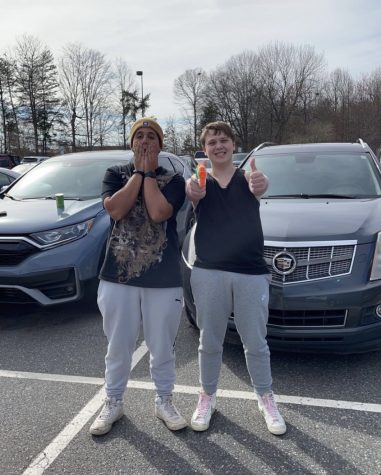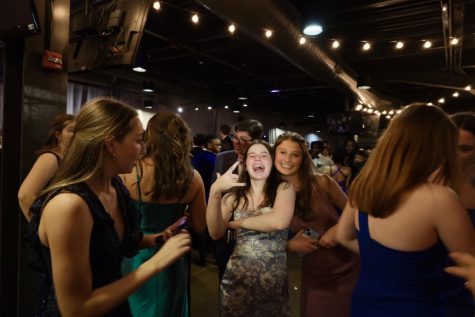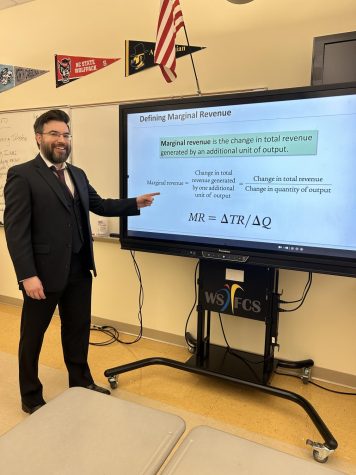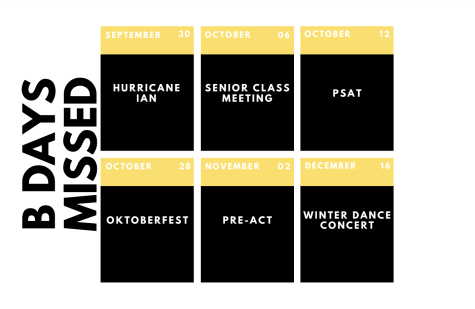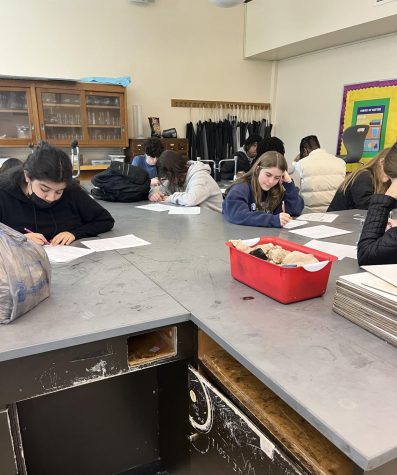The Retail Referendum
December 21, 2017
With the holiday season progressing, retailers are getting more business than any other time year. Online based companies like Amazon are lowering their prices, giving free shipping and guaranteeing deliveries before the end of the holiday season. With this ever growing shift to online markets, what does this mean for traditional retailers? What does it mean for basic necessities and public service?
Brick-and-mortar retailers, or retailers that reside in a physical building are being slowly pushed out by large online corporations that can serve as a one-stop-shop for consumers to get all the things that they want and need without leaving their couch. In just a year, e-commerce sales rose 15.5% or about a 115 billion dollar raise in annual revenue and brick-and-mortar retail rising only 4.5%.
E-commerce retailers like Amazon have made it very easy to order things without leaving the house, and with Amazon Prime, consumers are guaranteed free two day shipping.
“Ordering stuff online is a lot easier than having to go to a store and risk them not having it. This way I know I can get what I need without leaving my house, and it will be here in two days,” said junior Zach Brown.
The emerging e-commerce market will lead many brick-and-mortar stores to their downfall, especially ones that are locally owned, and don’t have an online medium for consumers to buy products and services. Stores, especially ones focused on technology and electronics like Best Buy and Sears have made large attempts in the last decade to put their market online to compete with large online retailers like Amazon, which serves a plethora of more options for consumers.
E-commerce resistant retailers like gas stations and grocery stores, as of right now, will not be affected by this transition because these things may be hard to integrate into an online market. Amazon has been attempting to bring the food/grocery market online by offering online grocery shopping, but it is rather unpopular and most consumers prefer to go to a physical store to get their groceries because when a consumer goes to a brick-and-mortar grocery store, they can physically see what they are buying, unlike online where there is a risk of getting damaged, opened, or expired food or beverages. This argument could also be applied to anything online, but with the introduction of grocery shopping online heightens this argument.
Retail is not the only medium moving to the online market. Online services like Uber and Lyft allow a user to request a taxi on an app on their phone, and a driver will act as a taxi, with payments and tips all done online. These services are more prominent in smaller cities and towns where big taxi services are not too prominent. In massive cities like New York City, traditional yellow cab taxis beat out online taxi services in annual revenue.
Online schooling has taken the eye of many students in recent years, because students can take courses during the summer, but also may serve as a reason for students to not go to a traditional school. School forces students to be put into social construct and teaches them to learn how to talk and carry a conversation with someone. If schooling takes an online transition, where students do not have to go to a physical school, it can take social opportunity out of a student’s life.
Although this transition may serve many beneficial needs, necessities like transportation, public services like schools, and food services should not make the transition online. This not only keeps retailers in business, but it also forces consumers to leave their house to get the things that they need. If this transition continues on, it could reach a point in which the consumer does not have to leave their house for anything, isolating social interaction.





